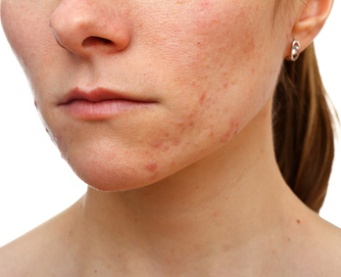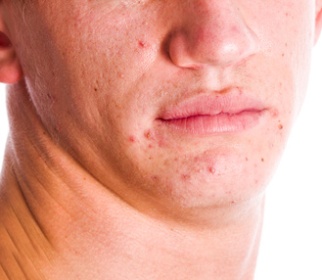
The best treatment for adult acne may depend on a number of factors, including the cause and severity of your acne. We know it can be difficult to figure out what treatment will work best for you since there are so many different treatment options. We’ll tell you about the most commonly used treatments and also tell you about our top recommended acne adult treatment.
When considering your options, it’s important to consider the risks and benefits, the advantages and disadvantages, of each option. We’ll tell you a little bit about the pros and cons of different treatments, but we encourage you to learn more, especially if you’re considering prescription drugs or treatments like chemical peels or steroid injections. Talk with your physician if you have questions about the best treatment for adult acne in your case.
Over-the-Counter Remedies
Over-the-counter remedies are often effective at treating mild to moderate cases of acne. There is a large variety of these available in stores, including products containing benzoyl peroxide and products containing salicylic acid.
Side effects are usually minimal but these products can cause skin irritation, redness, burning, and even flaky or peeling skin in some cases. People that are allergic to aspirin shouldn’t use products containing salicylic acid.
Prescription Topical Treatments
If over-the-counter remedies don’t work or if your acne is moderate to severe, you may need to see your doctor. Prescription topical products for acne adult treatment include lotions, creams and ointments containing ingredients like benzoyl peroxide (usually in higher doses than found in over-the-counter remedies), retinoids (derived from vitamin A) and antibiotics.
Since prescription topical treatments are stronger than over-the-counter remedies, they may be more effective on moderate to severe acne, but the risk of skin irritation and other side effects is also greater. To reduce the risk of side effects, use prescription products only as directed and don’t use any other topical treatments for acne at the same time unless directed by your doctor. Notify your doctor if your prescription treatment is causing irritation or discomfort.
Prescription Oral Medications

Prescription oral medications are generally prescribed if topical medications don’t work or if acne is really severe. Sometimes they are used in conjunction with topical medications. Oral medications for acne may include oral antibiotics, contraceptive drugs (for women, when acne seems related to cyclical hormonal changes), anti-androgen drugs (also for women, to help control acne related to hormones), and, in really severe cases, a medication called isotretinoin.
Oral medications are usually only prescribed for severe cases of acne due to the risk of side effects. Side effects vary from drug to drug, of course, but may include headaches, breast tenderness and painful menstrual periods in women, weight gain, and increased risk of blood clots. In addition, women taking isotretinoin must be very careful not to become pregnant due to the significant risk of severe birth defects. When deciding upon the best treatment for adult acne for you, make sure to discuss the risks and benefits of any prescription medications with your physician.
Other Medical Treatments
Other medical treatments sometimes recommended by doctors include phototherapy (light therapy), steroid injections, chemical peels, and using special tools to extract whiteheads and blackheads that haven’t cleared up with other treatments. These treatments are generally only recommended when others have been tried but haven’t been effective. They can be painful and some may leave unwanted scars.
The Best Treatment For Adult Acne
The best treatment for acne that we’ve found is the Proactiv Solution 60 Day Acne Treatment Kit. It contains four products designed to be used together to prevent and treat acne, including a cleanser, toner, acne treatment, and face mask. Proactiv acne products are strong enough to be effective but gentle enough that they usually do not cause skin irritation or other issues. To learn more about our preferred treatment for adult acne, just follow the link.
